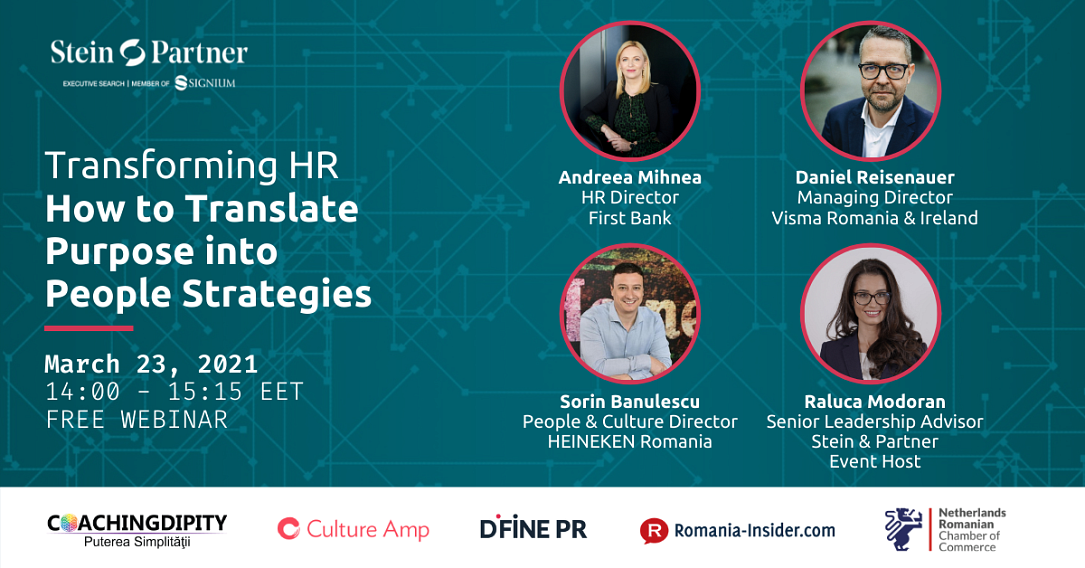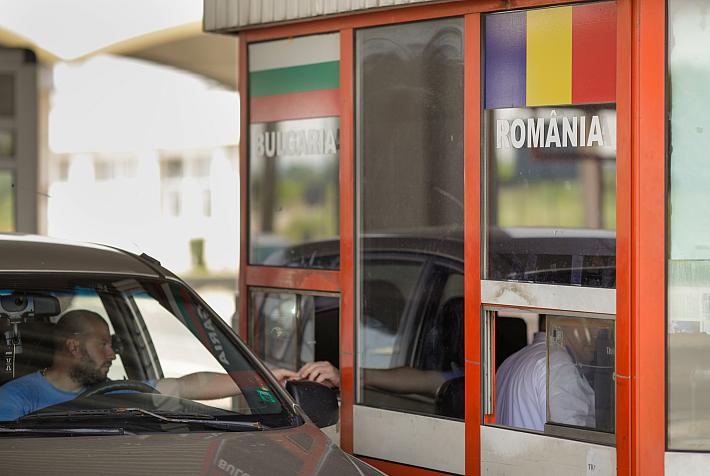(P) Transforming HR: How to translate Purpose into People Strategies - Key Learnings

“The purpose of life is not to be happy. It is to be useful, to be honourable, to be compassionate, to have it make some difference that you have lived and lived well.” - Ralph Waldo Emerson
The concept of organisational purpose has never been more prevalent than now, even one year into the pandemic, and leaders around the world have been confronted with countless challenges. Businesses have become so engaged in redefining their direction because this period demanded of them a moment of contemplation: What is our mission as a company? Why do we do the work we do?
Re-evaluating the people strategies is, to say the least, as critical as addressing other business areas such as marketing, sales, financial, etc. People have been through the biggest disruption to their employment since the previous 2008 crisis, and most employers have implemented more changes to their organisation in 2020 than they had in the past years, cumulatively. The challenge is to see this as a huge opportunity to step forward.
Stein & Partner hosted on the 23rd of March the first event of the Transforming HR series - How to Translate Purpose into People Strategies having as guest speakers: Andreea Mihnea – Chief People Officer at First Bank, Daniel Reisenauer, Managing Director at Visma Software Romania & Ireland and Sorin Banulescu – People & Culture Director at Heineken Romania.
We wanted to challenge different perspectives, therefore we invited three speakers from diverse industries, namely Banking, IT&C and FMCG. Read the summary below to find out how the past year has been for them, what challenges they faced with redefining organizational purpose and how this impacted the people strategies in the companies they work for.
We live in the future now
In order to stay competitive in the new business and economic environment, most leaders recognise technology’s strategic value. Digitalisation has been a hot topic over the years, but it has taken a global event to trigger changes that were only ideas in the last decade. The pandemic has launched all of us into the digital future and practically overnight, remote working and many other online processes have become realities. A good number of employees have rapidly embraced the digital era, in some cases leading to more engagement and productivity.
For some industries, especially in the IT&C, the changes were embraced faster, as Daniel Reisenauer states about his company: “Even before the pandemic, it was easier for employees to carry out their activities digitally, as we are an international software company, and we use a lot of tech’ applications to interact across teams and cultures, so, this helped a lot from a mindset perspective to transition into the digital era”.
“But what happens in other sectors and especially if we talk about a more traditional kind of organization as opposed to a digital native one? Do I make my employees climb the stairs of digitalisation or is it something they can do for themselves? And especially if we are referring to an organisation not accustomed to technology, then the process is massive and messy and it’s usually in the hands of HRs and Managers. People need to understand the “why’s” and the “what’s” behind these, and also to receive the most support, so as not to get stuck on the way because they did not have trainings or IT support” challenged Andreea Mihnea.
Further on, we would like to tackle some drivers to better prepare for digitalization (McKinsey Global Institute “Twenty-five years of digitization”, May 2019):
- Mobilisation which needs shared ownership, accountability and responsibility
- Clarity of commitment on the digital transformation
- Sufficient resources devoted to it as a core organisational priority
- Investment in the technical talent
- Flexibility & Agility
“Despite being a great promotor of technology, which I genuinely think is necessary and it can get us far, if we don’t get it right and are forcing it into people’s lives, we could hit a wall. Although we communicate virtually a lot, life should not be just a screen. The feeling of belongingness is not the same” – continued Andreea Mihnea.
Daniel Reisenauer shared with us about the initiative of completely changing the purpose of Visma Software from the organisational growth to the safety of the people. One of the examples he highlighted was related to promoting people's health and networking, by adopting a new concept on meetings while “walking in nature” to take a break from the digital environment.
Service to others as a driver of motivation
“Where your talents and the needs of the world cross, there lies your vocation” - Aristotle
Now, more than ever, businesses also have an opportunity, and a duty, to engage in the needs of the planet. The potential is extraordinary for organisations to serve for the greater good and initiatives such as giving back to the community, remain a powerful force.
Daniel Reisenauer and Sorin Banulescu shared a few examples of how they’ve organized the teams to pursue higher goals.
In Visma Software the team identified an opportunity to use existing equipment for a different purpose and decided to use their companies’ 3D printers to build medical equipment. They were also involved in numerous activities to help the environment.
Sometimes the biggest impact comes in the form of a small change, as Sorin told us. During his HR Director mandate in Heineken Haiti, he established a medical centre to compensate for the poor medical services available in the location and facilitated the installation of an ATM machine on-site to ease the living conditions of his colleagues.
The above represents a wonderful depiction of how we can bridge a purpose gap between people’s desire at work versus what they actually experience. But how do we connect people to purpose?
We, as individuals are increasingly looking for meaning and the workplace should be one of the sources where we derive it from.
As a conclusion of the insights collected from our speakers, we should begin by taking a close look at the relationship between our social and environmental impact and our strategy and purpose, and then connecting this with our tremendous employee potential. This will unleash and boost motivation, helping organisations to implement effective people strategies.
“My people have been involved in helping the environment and the population, not because it was part of their performance objectives, but because they understood that giving back to their community was what made them tick and it was also something they could do on a daily basis in their personal life as well” – mentioned Daniel Reisenauer.
Connecting people’s individual purpose with the organisational one is the missing puzzle piece and although we may not yet have all the answers on how to do this, we’ve collected some recommendations from the speakers:
- Adapt your perspectives and your references to the new reality (don’t complain about why things are happening in a certain way but rather ask yourself what you can do to understand the bigger scheme of things)
- Never start by judging – be mindful of the context
- First give and then expect to receive – in this way you, as a leader, become credible and earn genuine respect
- Engage, help, enjoy people and cultural connections
- Create community cohesion and promote external activities for a better engagement
- Use technology wisely and don’t force it into your people’s lives
- Listen to your colleagues, be transparent and ask for feedback
- Make the mental health of the employees a top priority as well
- Let your people go out as often as possible
The next event of the Transforming HR series - What do Leaders need to Unlearn to Succeed in the New Normal will be organized on June 21, 2021. More info here.
(p) - This article is an advertorial.












